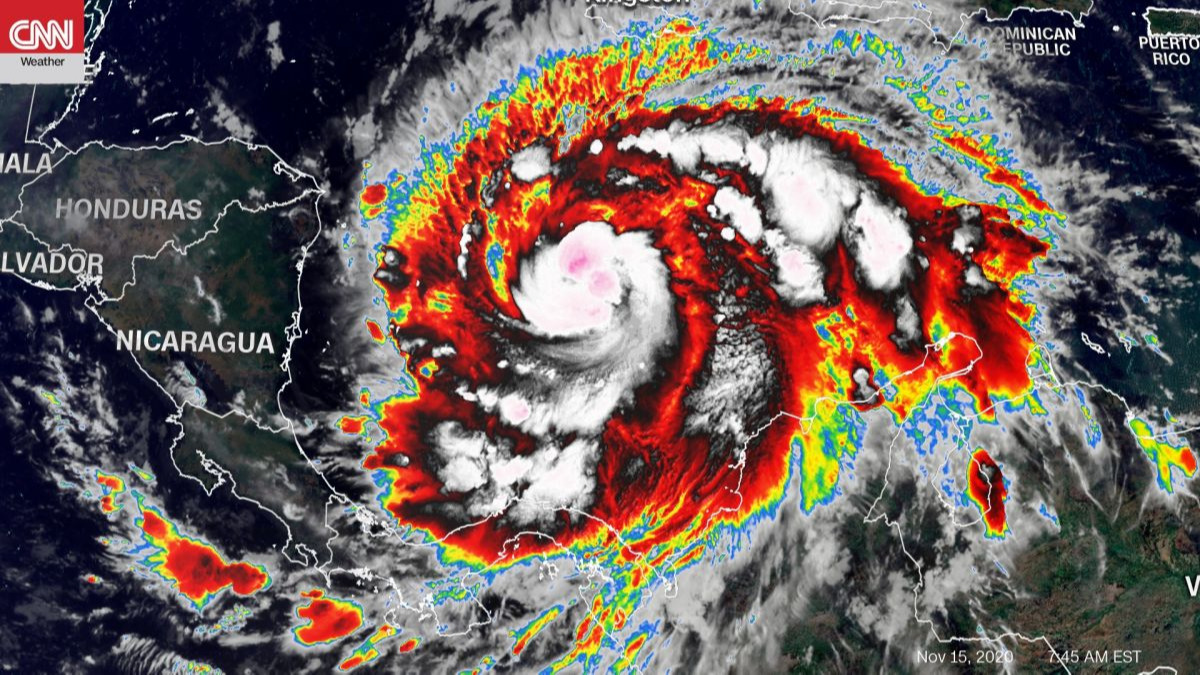
Evacuations under way in Guatemala and Honduras as Hurricane Iota set to make landfall on Monday. (Image: CNN Weather)
Managua, November 15 (RHC)-- Hurricane Iota is rapidly gathering strength as it barrels towards Central America, threatening to bring “life-threatening” storm surges and “catastrophic” winds to a region still recovering from the devastation of Hurricane Eta.
As of 10 am EST (15:00 GMT), Hurricane Iota was about 335 miles (539 km) off the Nicaraguan-Honduran coast, packing maximum sustained winds of 90 miles per hour (145 km/h), according to the U.S. National Hurricane Center (NHC).
“Iota is forecast to be an extremely dangerous Category 4 hurricane when it approaches Central America,” the NHC warned. Hurricane Iota is expected to make landfall by late Monday.
The system was forecast to bring up to 30 inches (760 millimetres) of rain from northeast Nicaragua into northern Honduras. Costa Rica, Panama and El Salvador could also experience heavy rain and possible flooding, the hurricane centre said.
Forecasters said the island of Providencia and parts of Nicaragua and Honduras were under hurricane warnings. A storm surge could increase water levels by up to 13 feet (4 metres) in Nicaragua and Honduras.
In Guatemala and Honduras, evacuations were under way in areas expected to be affected by Iota. “We have to get out, we have to save our lives,” Erick Gomez, a resident of Cruz de Valencia in northwestern Honduras, said on Saturday as he prepared to leave. He said he only survived the flooding from the last hurricane by clinging to a tree to avoid being swept away by rushing water. “We are afraid of what we just suffered with Eta, and we do not want to go through the same thing again,” he added.
The storm comes as Central America is still coping with the enormous destruction wrought by Eta, which slammed into the region two weeks ago, causing flooding and mudslides that have killed scores of people from Panama to southern Mexico.
Iota became the 13th hurricane of the Atlantic season early on Sunday and was already a record-breaking system, being the 30th named storm of this year’s extraordinarily busy Atlantic hurricane season. Such activity has focused attention on climate change, which scientists say is causing wetter, stronger and more destructive storms.
Eta was the 28th named storm of this year’s hurricane season, tying the 2005 record for named storms. Theta, the 29th, was weakening over the far eastern Atlantic Ocean. It was expected to become a remnant low sometime Sunday, forecasters said.
The official end of the hurricane season is November 30th.

